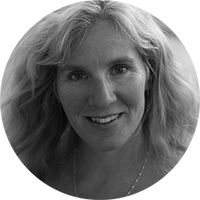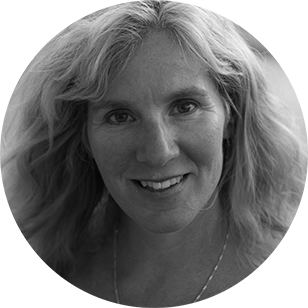In the stores of the future, plastic will be a thing of the past
Customers are eager to reduce their environmental footprint. So they're turning to the local corner shop.


A free daily email with the biggest news stories of the day – and the best features from TheWeek.com
You are now subscribed
Your newsletter sign-up was successful
For a store of the future, The Soap Dispensary and Kitchen Staples shop in Vancouver, Canada, has a cozy old-style feel. Jars and bins line the long counter; all the products on the shelves are package-free and easy to pick up and examine. "People come here to talk about the things they buy," owner Linh Truong explains. "Shopping is a collaboration. Staff take each order and touch every product."
The busy counter, which buzzes with neighborly greetings, is about as far from anonymous online shopping as it gets. Not only do many of the products come in bulk (you bring your own bottles, containers, and shopping bags), but most customers are hyper-local and walk or cycle to the shop to pick up items — everything from mundane kitchen staples like olive oil, to the unusual, like a new pigment for handmade eye shadow.
With single-use plastic, like grocery bags and water bottles, now accounting for nearly 40 percent of global plastic production, and the world's consumers thinking twice about the waste they generate, Truong explains that stores like hers are an essential part of the plastic-trash solution. "Consumers need to demand we do better," she says, "and business needs to listen."
The Week
Escape your echo chamber. Get the facts behind the news, plus analysis from multiple perspectives.

Sign up for The Week's Free Newsletters
From our morning news briefing to a weekly Good News Newsletter, get the best of The Week delivered directly to your inbox.
From our morning news briefing to a weekly Good News Newsletter, get the best of The Week delivered directly to your inbox.
It's hard to argue against the urgency of our plastic problem. Estimates say less than a third of the plastic used globally each year is recovered and recycled. Across the planet, tons of the synthetic material finds its way into the oceans, leaving people who eat seafood ingesting up to 11,000 pieces of micro plastic every year. A recent study found even our drinking water is becoming contaminated by plastic.
While it is easy to imagine an ideal community where stores are free of plastic bags, coffee shops shun single-use cups, and restaurants offer compostable take-out containers, getting to that ideal is deceptively difficult. Plastics-industry-supported groups like the American Progressive Bag Alliance and American Chemistry Council have spent millions on rebranding plastic with programs focused on convincing consumers that reducing our dependence on plastic is unnecessary.
Community efforts to eliminate plastic bags have also come up against well-funded pro-plastic campaigns. City legislation in several states, including Florida, Michigan, Missouri, Idaho, Arizona, Wisconsin, and Indiana is being stopped in its tracks by pre-emptive industry-supported state laws that prohibit local governments from banning or putting fees on plastic bags — essentially banning plastic bag bans.
Even efforts by big box businesses to do things differently haven't worked out as well as hoped: Decreasing the thickness of packaging for products like milk resulted in more spillage, and the effort to use more recycled plastic has been hampered by poor recovery outcomes — less than 6 percent of new plastic is made from recycled material.
A free daily email with the biggest news stories of the day – and the best features from TheWeek.com
Despite all that, research does show consumers are eager to break their dependence on plastic and other non-reusables. Small business owners are in a unique position to help fulfill this desire. By experimenting with new plastic-free initiatives and products and seeing what works, small businesses can both subvert legislation and avoid the pitfalls experienced by bigger companies.
And so far, it seems to be working. Throwaway polystyrene coffee cups, soup bowls, plates, and fast food cartons are slowly but surely disappearing, thanks to community-level legislation in places like Portland, Seattle, and New York City. Elsewhere, groups like Surfrider and their Ocean Friendly Restaurant program and Responsible Cafes in Australia are increasing awareness by encouraging business owners to phase out plastic dishes, bottles, and straws in neighborhood restaurants.
In the case of The Soap Dispensary, Truong says she initially opened her store because it was the sort of place where she herself wanted to shop but couldn't find. "First-time customers are excited — but they usually have questions and want to know how it works." Indeed, for people who have spent all their lives shopping in big-box stores where everything is individually packaged for them, there's a bit of a learning curve when they're confronted with aisles and aisles of loose products. But it's nothing a quick lesson can't remedy: Yes, you can refill any container. No, they don't have to be empty — you can add shampoo to shampoo or dish soap to dish soap. Yes, you will save money.
Once The Soap Dispensary was up and running in 2011 and customers became enthusiastic regulars, Truong says there was huge demand for her to expand her operation, first by opening a bigger store, and then by adding kitchen staples in 2017. "Small businesses should work in partnership with their customers," Truong explains. Almost everything she sells in her store was at the direct urging of her customers. This is how the store came to carry hand-made bath bombs, as well as cocktail mixes made from local fruit. The customers did the research and found the new ideas, "I just empowered them by listening," Truong says. Where big businesses may struggle to maintain a relationship with customers, small companies like hers can truly tap into what the shoppers of today want for their communities tomorrow.
"It's what shoppers want and what the planet needs," Truong says. "And as small businesses, it's just good customer service to pay attention to what our customers ask for."
Diane Selkirk is a nomadic writer who's spent the past eight years sailing around the world with her family. Along the way she's written stories for publications including BBC Travel, National Geographic Travel, Conde Nast, and Cosmopolitan.
-
 Nuuk becomes ground zero for Greenland’s diplomatic straits
Nuuk becomes ground zero for Greenland’s diplomatic straitsIN THE SPOTLIGHT A flurry of new consular activity in the remote Danish protectorate shows how important Greenland has become to Europeans’ anxiety about American imperialism
-
 ‘This is something that happens all too often’
‘This is something that happens all too often’Instant Opinion Opinion, comment and editorials of the day
-
 House votes to end Trump’s Canada tariffs
House votes to end Trump’s Canada tariffsSpeed Read Six Republicans joined with Democrats to repeal the president’s tariffs
